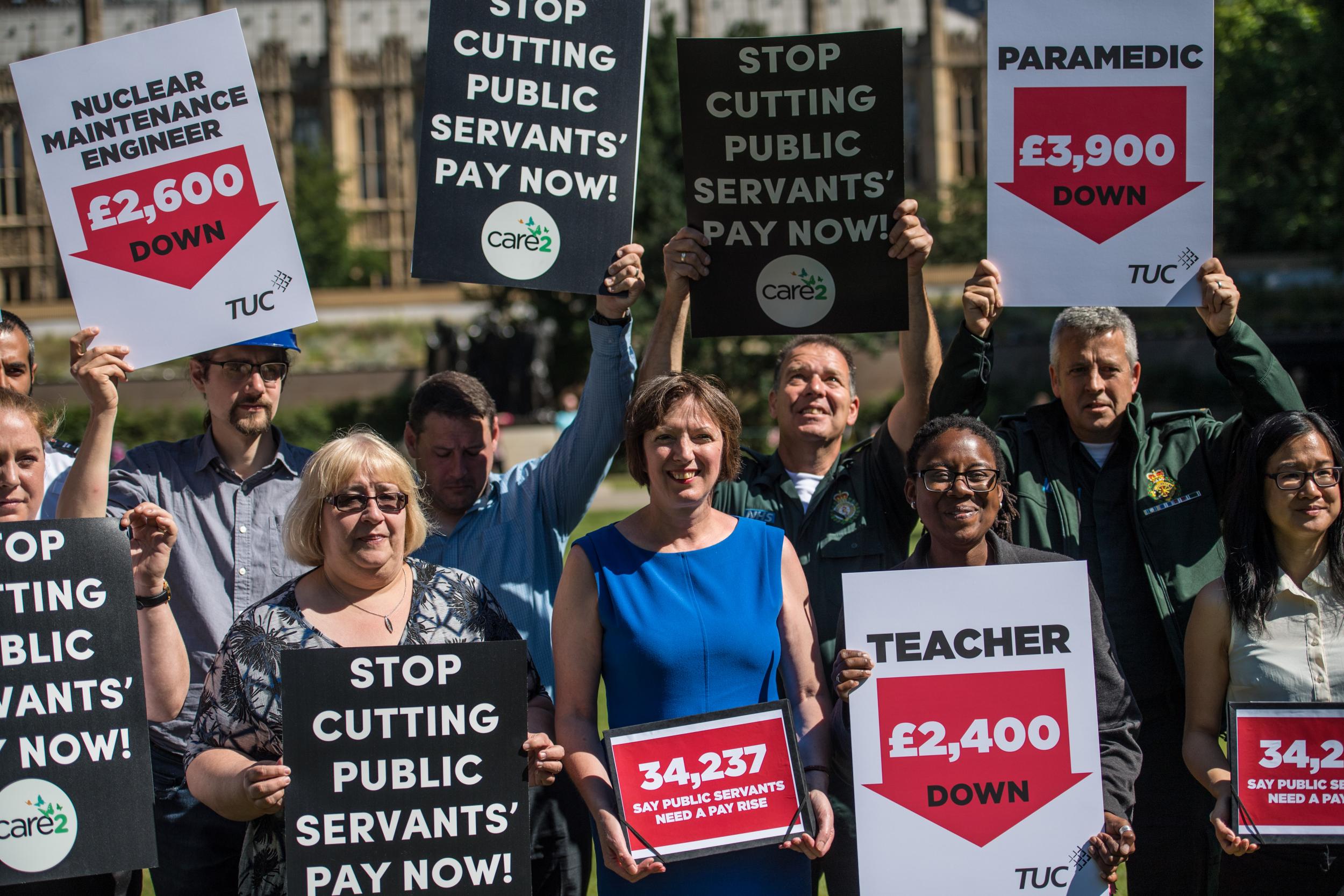Public sector pay cap reduces spending power by £8.5bn in England this year, TUC claims
Chancellor urged to 'end artificial pay restraints' in the upcoming Budget as new figures show spending power slashed by £48bn since 2010

The controversial cap on pay for public sector workers has reduced spending power by £8.5bn in England this year, new analysis shows.
Philip Hammond is facing calls to scrap the 1% pay freeze for all public sector workers in the upcoming Budget after being accused of "cherry picking" certain staff for wage increases, such as police and prison officers.
Research by the Trades Union Congress (TUC) shows the long-standing pay cap has meant staff such as nurses, teachers and civil servants spent £48bn less on the high street since it was introduced in 2010.
Vital public sector staff are earning £2,000 less on average than if their pay had risen in line with inflation, according to the TUC, with reports of workers skipping meals or relying on food banks to make ends meet.
The Chancellor - who came under fire for saying public sector workers were "overpaid" - is being urged by union bosses to make a specific announcement about public sector pay in Wednesday's Budget.
The 50 poorest parliamentary constituencies in England, which include North Thanet in Kent, Berwick-upon-Tweed in Northumberland, and Leicester East, have seen a combined loss in spending power of £3 billion since 2010, the TUC said.
The North East and North West regions – which have the highest share of public sector workers – have seen falls of £2.1 billion and £7 billion respectively since the start of the decade.
TUC General Secretary Frances O’Grady said: “The public sector pay squeeze has driven up in-work poverty. And that means less money spent on high streets and in local businesses.
“The pay cap is a false economy. The Chancellor must use the Budget to give all public sector workers the pay rise they have earned, and end these artificial pay restrictions.”
Recent TUC polling shows that one in seven public sector workers were forced to skip meals this year while 24% say they were unable to pay an unexpected bill of £500.
Unison general secretary Dave Prentis said: "Seven years of 'lost' wages have created huge financial worries for millions of public service employees and their families. As they were forced to cut back on their spending, local high streets have borne the brunt.
"A decent pay rise for hospital, council, school and police staff this Wednesday would not only ease the strain on household budgets, it would also bring a much-needed boost to local economies across the country."
Mr Hammond said he would lift the public sector pay cap during the Budget but has yet to say whether the NHS and other services will have to find cash to fund higher pay from within existing budgets.
“We’ve got to recognise that people in our public services feel under pressure from a long period of pay restraint,” he told The Sunday Times.
“The public services themselves have strained every muscle, every sinew to deliver within very tight resource envelopes. We’ve got to do what we can.”
Join our commenting forum
Join thought-provoking conversations, follow other Independent readers and see their replies
Comments